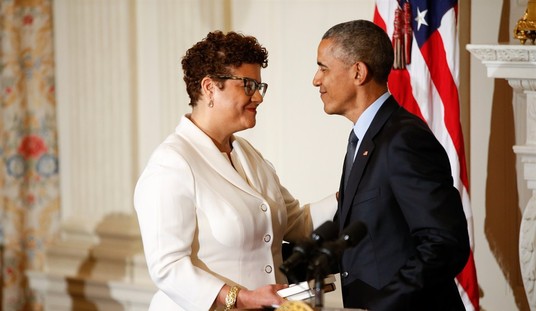With the terrorist networks of eastern Libya unleashed, no one questions the threat that they pose to stability in North Africa. Both the White House and Pentagon agree that al-Qaeda in the Maghreb, the most virulent of these and a long-standing branch of Osama bin Laden’s network, could do a tremendous amount of damage. The question for the White House, according to the Los Angeles Times, is whether they pose much of a threat outside of the region. So far, they’re inclined to say no, and resist efforts to confront AQIM:
Some top Pentagon officials and military officers warn that without more aggressive U.S. action, Mali could become a haven for extremists, akin to Afghanistan before the terrorist attacks of Sept. 11, 2001.
Militants in Mali, “if left unaddressed, … will obtain capability to match their intent — that being to extend their reach and control and to attack American interests,” Army Gen. Carter Ham, head of the U.S. Africa Command, said in an interview.
But many of Obama’s top aides say it is unclear whether the Mali insurgents, who include members of the group Al Qaeda in the Islamic Maghreb, or AQIM, threaten the U.S.
Those aides also worry about being drawn into a messy and possibly long-running conflict against an elusive enemy in Mali, a vast landlocked country abutting the Sahara desert, just as U.S. forces are withdrawing from Afghanistan.
“No one here is questioning the threat that AQIM poses regionally,” said an administration official who spoke on condition of anonymity when discussing internal deliberations. “The question we all need to ask is, what threat do they pose to the U.S. homeland? The answer so far has been none.”
So far. The same could have been said in Afghanistan, after our intervention in that country drove the Soviet army into retreat and the Soviet Union into collapse in the late 1980s. The US and the world benefited from the collapse of that tyranny, but less than ten years later, the failed state of Afghanistan served as a base for the AQ core that launched deadly attacks on Khobar Towers in Saudi Arabia, two American embassies in Africa, the USS Cole, and of course 9/11.
Maybe someone can remind us what we got out of the collapse of Libya? Nothing — no geopolitical advantage, no economic advantage, nothing except the temporary halt of Moammar Qaddafi’s offensive against Benghazi, a city where the US can no longer raise its flag in peace. The question asked above by this administration official should have been applied to our war on Libya in 2011. In large part, we (including NATO) unleashed AQIM and other terrorist groups to march across the Sahel by turning Libya into another failed state, even though we knew at the time that terrorist networks had been establishing themselves in the eastern part of the country. Without a central government in Tripoli, they have assumed control and are now spreading their tentacles across northern Africa.
AQIM doesn’t pose a threat to the US homeland at the moment, and probably won’t for at least a few years. They have already made northern Africa a danger zone for the West, though, and they’ll threaten Europe soon enough. It’s only a matter of time before that threat migrates to the US. Maybe the next time we face a situation like Libya, we’ll think about the long-term consequences of decapitating regimes in countries and regions where Islamist terror networks would operate with impunity when given the opportunity, and we could avoid having to decide whether we need to rush to fight AQIM on their turf or wait until they want to fight on ours.








Join the conversation as a VIP Member